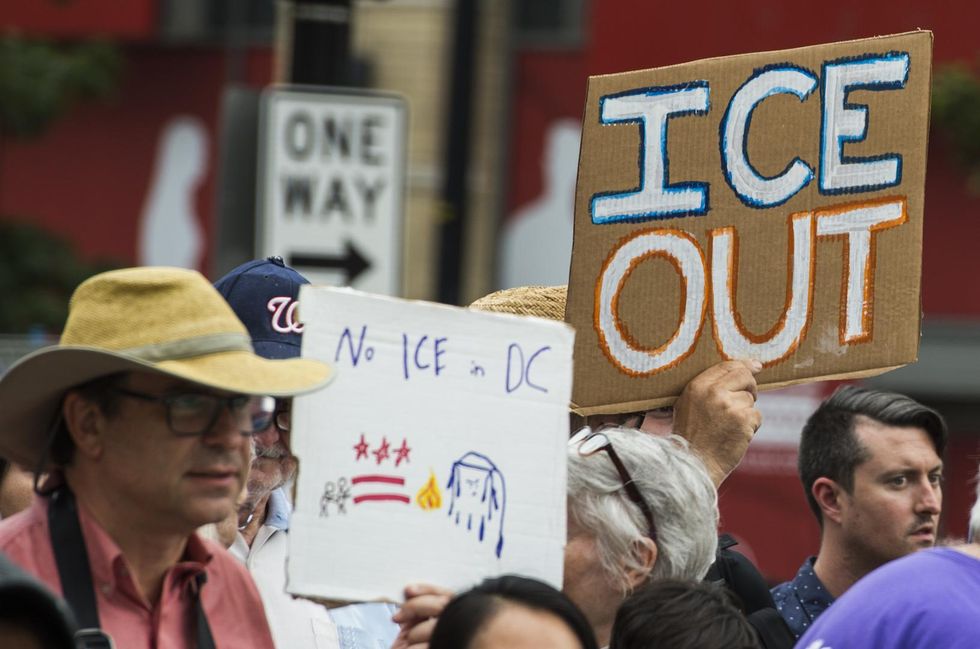
Protesters are calling for universities with ICE contracts to sever ties with the federal law enforcement agency. (ANDREW CABALLERO-REYNOLDS/AFP/Getty Images)

As calls to #AbolishICE continue to reverberate among liberal politicians and activists, the movement has now taken hold at some universities that have contracts with U.S. Immigration and Customs Enforcement, Inside Higher Ed reported.
It apparently doesn't matter that these contracts have nothing to do with security policies at the U.S.-Mexico border, deportations, or family separations — some students and faculty want their schools to sever all ties with the agency, regardless of how much good comes from the collaboration.
"But if our school is to live up to its stated values of free intellectual inquiry, human rights, human flourishing, and 'knowledge for the world,' — a quote from [John Hopkins University's] first president — it cannot do so while assisting ICE agents," a petition read.
Few universities have active contracts with ICE, according to Inside Higher Ed. Johns Hopkins University partners with ICE for "education and training services and tactical medical training," and has done so since 2009.
Northeastern University contracts with ICE on research "related to the movement across borders of materials used in weapons of mass destruction."
The University of Alabama at Birmingham worked with ICE's Cyber Crime Unit to help prevent the smuggling of harmful counterfeit drugs and opioids into the United States.
Vermont State Colleges have worked with ICE on multiple contracts, helping the agency by providing workforce training in leadership and financial accounting.
Those against university associations with ICE simply want full separation from the agency due to its controversial policies on illegal immigration. But even some of the protesters acknowledge how productive the relationship has been.
"Furthermore, we understand that there is a historic relationship between this university and the federal government which has enabled decades of life-saving and innovative research," the Johns Hopkins petition reads, before going on to call for the school to stop assisting ICE altogether.
Petitioners at Northeastern University wrote that "Having any kind of contract with ICE at this moment in history is irresponsible and immoral."
Neither Johns Hopkins nor Northeastern seemed moved by the protests, and issued statements highlighting the positive impact of the ICE partnerships.
Johns Hopkins, in a statement, mentioned its "longstanding service contracts with federal law enforcement agencies to provide education, training and medical expertise" and pointed out that it contracts with many local, state and federal agencies for those purposes, not just ICE.
Northeastern's statement pushed back against efforts to restrict the freedom of faculty members to get research funding from certain sources.
"Our commitment to academic freedom goes beyond protecting what professors say; it also means allowing faculty members to freely pursue research funding in their fields of expertise," wrote spokeswoman Renata Nyul. "Efforts to restrict which federal agencies a faculty member can approach for research funding are antithetical to academic freedom."